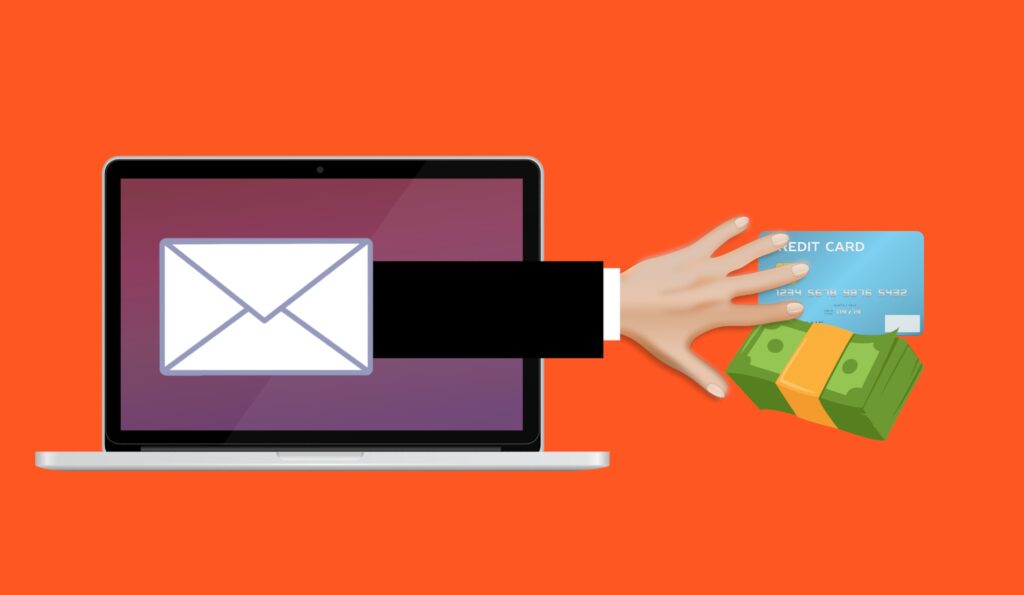Cybercrime attacks have been making headlines for a while now. They are an international problem with nations like China, Russia, and Middle-Eastern nations being targeted and being originators of cybercrime attacks. The term cybercrime is a broad term that includes ransomware, DDOS attacks, hacking, malware, disinformation campaigns, and more. The purpose of cyberattacks is likewise very broad, from government espionage to financial extortion and information theft. While government agencies like the FBI work to fight cyberattacks, it is also important for you to take steps to guard your personal data and minimize the amount of data you have online!
How the Government is Fighting Cybercrime
The Federal Bureau of Investigation (FBI) has its own cybercrime division. They are part of the National Cyber Investigative Joint Task Force (NCIJTF). The FBI leads this task force along with more than 30 co-located agencies from the Intelligence Community and law enforcement. Each of the FBI’s 56 field offices has specially trained staff that responds to cyberattacks and complaints. They also have a rapid response team and cyber assistant legal attachés in embassies across the globe. By working with other government agencies and working with international governments that hope to meet the challenges posed by the evolving cyber threats. This includes responding to reports of cybercrime. The public and businesses can submit to The Internet Crime Complaint Center (IC3).
U.S. government and cyber crime – Statistics & Facts reports the following on the costs and impacts of cybercrime in the US:
- $18.78 billion is the proposed US budget for cyber security in 2021
- Industry experts estimate that in 2018 the U.S. government faced costs of over $13.7 billion as a result of cyberattacks
- In 2018, the U.S. government agencies reported 31,107 cyber incidents, an approximately 11.8 percent decrease from the previous year
- In 2021, 24.9% of worldwide phishing attacks targeted financial institutions and 23.6% targeted social media
- Cyber espionage in 2020 mainly targeted financial institutions, healthcare, information, professional sectors, and public administration (100+ incidents in each of those sectors)
- In 2018, 68 percent of U.S. states had a documented and approved cybersecurity strategy with 80% having a defined governance plan regarding cybersecurity
How to Protect Yourself from Cybercrime
The UK and Europe have enhanced protections that make it easier for people to delete their online information. However, it is much harder in the US and many deletion requests go ignored. There are some apps and websites that can help you be aware of what information you have online. Account Killer and Mine are both great resources. They allow you to monitor and request data deletion and account closures for free!
It is important to know who has your data in case their systems are compromised. Likewise, it is good practice to delete unused accounts and take advantage of guest checkout when you are able. This helps minimize the amount of personal data that you have available online. It also enables you to guard yourself against cybercrime. Here are even more cybersecurity tips that the FBI Cybercrime Division recommends people implement for their personal computers:

- Keep your firewall turned on to prevent hackers from accessing your computer
- Install and/or update your antivirus software
- Install and/or update your antispyware software
- Keep your operating system (Windows, Mac OS, or Linux) up to date
- Be careful what you download, inspect incoming email addresses carefully and be weary of attachments
- Turn off your computer when not in use
- You can report email spam by forwarding the unsolicited spam email to spam@uce.gov
- You can also report email scams
Internet Fraud Prevention
The FBI Cybercrime Division also details different types of internet fraud that people need to be aware of. Being aware and alert to these threats is a big part of not falling victim to them. Here are some of the internet frauds that you should be aware of:
- Business E-Mail Compromise (BEC): Scam targeting companies that make wire transfers to foreign partners, compromises business email accounts to attempt to steal funds
- E-Mail Account Compromise (EAC): Similar to BCE but targets the general public and professionals in fields like real estate, finance, and law in order to request fraudulent payments
- Data Breach: When secure data is breached and leaked to unauthorized entities, targets confidential information, financial information, personal data, and sensitive data
- Denial of Service: Authorized access to a system or network is interrupted for malicious purposes
- Malware and Scareware: Malicious software used to damage or disable computers
- Phishing and Spoofing: Both involve forged/fake electronic documents, frequently targets email to solicit fraudulent payments or steal user information such as credit card numbers, passwords, and banking information
- Ransomware: A type of malware that targets human and technical weaknesses, often delivered through phishing emails, and results in cybercriminals hijacking systems or information until they are paid a ransom in the form of cryptocurrency
Final Thoughts: Recent Cyber Attacks and Personal Precautions
While these cyberattacks may seem distant, you should be aware that many attacks involve the theft of information. Many places store your user data. Whether it is city government utilities (which are a major cybercrime target), or websites you use for shopping or social media, your information is out there! This is why it is more important than ever to protect your data privacy and guard your personal information. Hackers can use that data to target attacks on you, to impersonate you, or scam you and extort you for money.
2021 Cyberattacks
You can see a full list of recent cybercrime activities on the Center for Strategic and International Studies website. Here are just some examples of recent cyberattacks they are reporting:
June 2021. Hackers linked to Russia’s Foreign Intelligence Service installed malicious software on a Microsoft system that allowed hackers to gain access to accounts and contact information.
May 2021. LineStar Integrity Services, a pipeline-focused business, was hit by a ransomware attack the same time as the Colonial Pipeline, with 70 gigabytes of its internal files being stolen.
May 2021. On May 6, the Colonial Pipeline, the largest fuel pipeline in the United States, was the target of a ransomware attack. The energy company shut down the pipeline and later paid a $5 million ransom. The attack is attributed to DarkSide, a Russian speaking hacking group.
April 2021. Hackers linked to the Chinese military conducted an espionage campaign targeting military and government organizations in Southeast Asia beginning in 2019.
April 2021. Two state-backed hacking groups—one of which works on behalf of the Chinese government—exploited vulnerabilities in a VPN service to target organizations across the U.S. and Europe with a particular focus on U.S. defense contractors.
March 2021. Suspected Iranian hackers targeted medical researchers in Israel and the U.S. in an attempt to steal the credentials of geneticists, neurologists, and oncologists in the two countries.
February 2021. The US Department of Justice indicted three North Korean hackers for conspiring to steal and extort more than $1.3 billion in cash and cryptocurrencies.
-from Center for Strategic and International Studies, “Significant Cyber Incidents”



Recent Comments